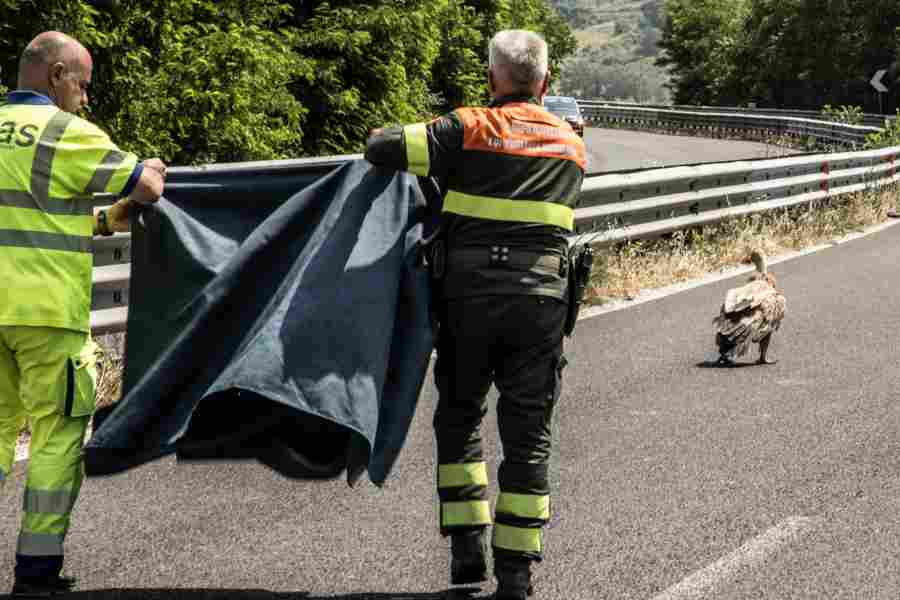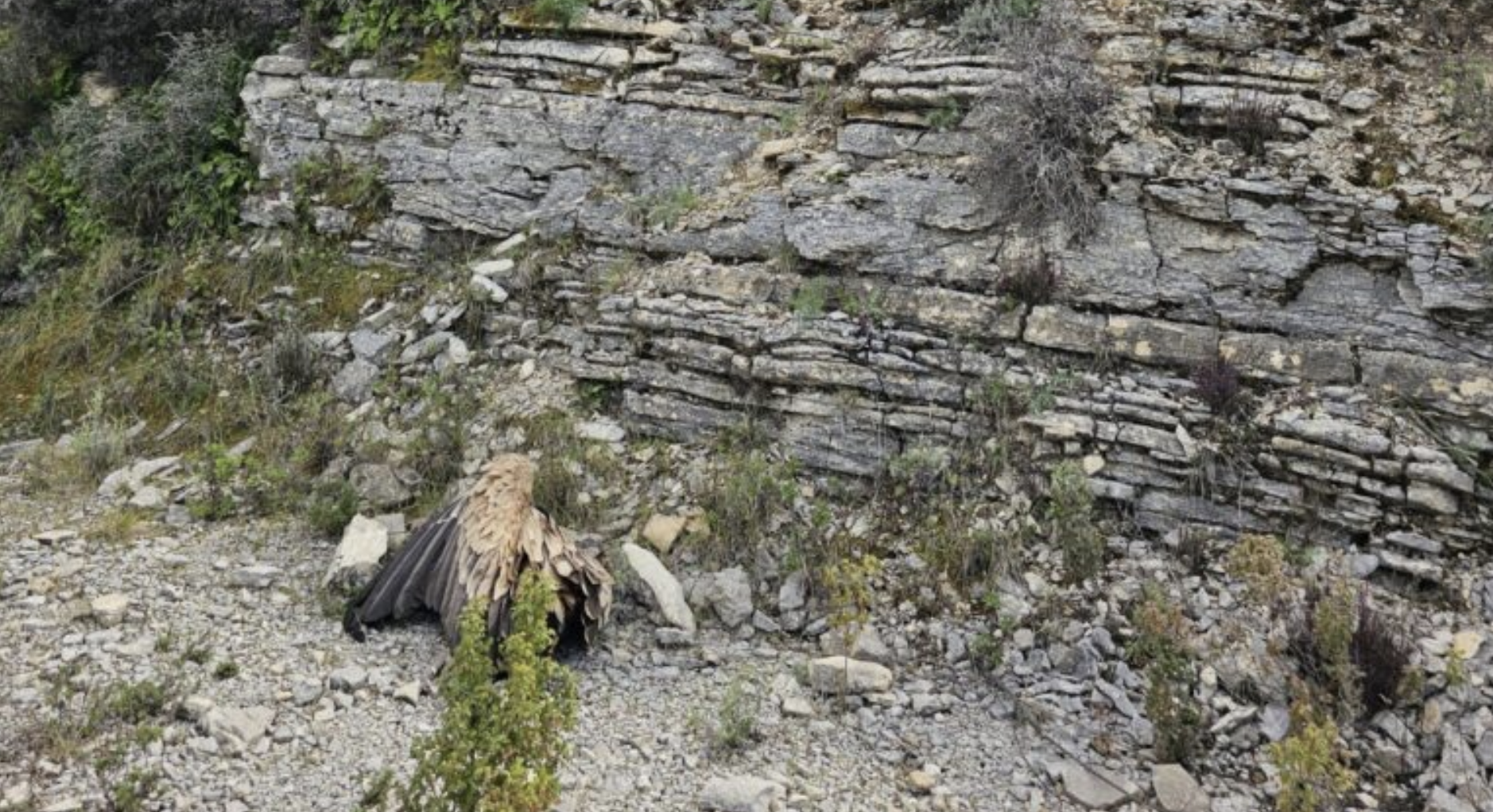
The breeding season 2021 has begun for the reintroduced Griffon Vultures in Bulgaria, with the first incubating pairs observed in Vrachanski Balkan!
Ongoing Griffon Vulture breeding season results
The Birds of Prey Protection Society monitored the Griffon Vultures in Vrachanski Balkan Nature Park at the beginning of February 2021. In the northern parts of the park, Griffon Vultures were sitting in their nests at ten different places, with incubating birds in at least two of the nests.
One and two pairs were observed respectively on other two nesting territories in the region of Vratsa. There were no incubating pairs yet in these nests, but the preparation of the nests and copulations are in progress.
The first data for Griffon Vulture nesting in Kresna gorge is from 5 February, where one pair already nested by then. Yesterday on 15 February, Hristo Peshev from the Fund for Wild Flora and Fauna observed the nests in the Kresna gorge again and identified one pair that laid a clutch and five more pairs ready to lay.
Last but not least, in the Eastern Balkan Mountains at Kotel, Lachezar Bonchev reported three pairs that certainly laid eggs a few days ago.
It is difficult to monitor some of the nests this year and observers cannot spot several nesting birds, which means that the total number of breeding pairs is possibly higher. Vrachanski Balkan, in particular, is the most challenging area to observe nests because the rocks are huge and the distances are vast.
Conservationists expect a boost in the number of breeding pairs in all the Griffon Vulture reintroduction sites in Bulgaria: Kresna and Balkan Mountain. The hope is that this year the breeding pairs will reach 45-50 and along with the 100 pairs in the Eastern Rhodopes, the national population will exceed 150 pairs.

The Griffon Vulture reintroduction efforts in Bulgaria started over ten years ago by the Green Balkans, Fund for Wild Flora and Fauna (FWFF), Birds of Prey Protection Society, Vulture Conservation Foundation (VCF) and other partners.
Griffon Vulture breeding season in Bulgaria
The Griffon Vulture breeding season usually starts in the late autumn and lasts until the fledglings leave the nest around July to August. At the beginning of the season, the birds form pairs and exhibit courtship behaviour such as allopreening that aids with pair bonding. The pairs nest on high cliffs or mountain colonies, with males usually providing most of the nesting material. After successful copulations, the female lays an egg between January to April, with the incubation period lasting around 55 days. The pair takes care of the chick until it fledges, which happens about 110-120 days after hatching.
Vultures Back to LIFE

Led by the wildlife conservation charity Green Balkans, with activities also implemented by the Fund for Wild Flora and Fauna, and bringing together partners from Bulgaria, Spain and Germany, Vultures Back to LIFE aims to reintroduce the cinereous or Eurasian black vulture to Bulgaria. The team will transfer and release around 60 birds, some from captive-breeding, but mostly coming from wildlife rehabilitation centers in Extremadura (Spain) into the wild in Bulgaria as well as creating supplementary feeding stations and improving populations of wild herbivores, improving the nesting conditions and creating artificial nest sites and tackling some of the major threats to vultures in the country such as insulating electricity pylons and illegal use of poison in the nature.






